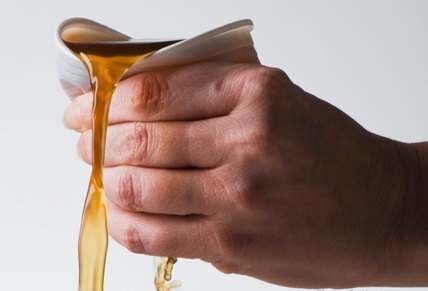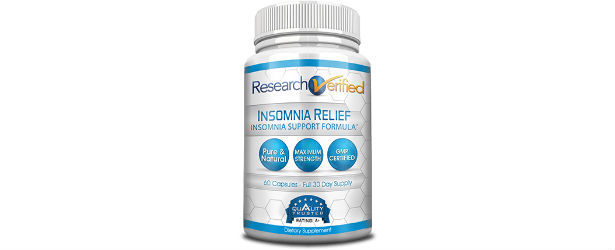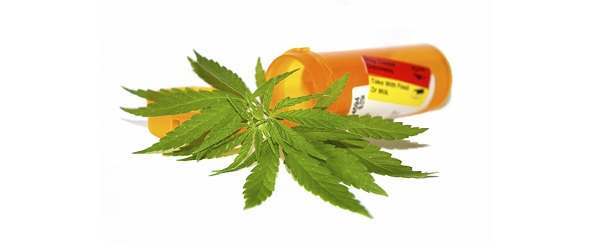
Insomnia Basics
Surveys show that millions of people are affected with Insomnia – i.e., Lack of sleep or lack of the ability to fall asleep. This condition is mainly triggered by mental stress – to put it short. Insomnia could be acute (inability to sleep or maintain sleep consistently for less than a month) or chronic (when the condition extends for more than a month).
 People experience different kinds of Insomnia. Some find it difficult to fall asleep, others have difficulties in sleeping at a stretch through the night and yet others wake up during early hours of morning or maybe even during the night and find it difficult to go back to sleep. Poor sleep through the night could affect the whole day keeping one feeling dizzy and tired through the entire day causing a feeling of restlessness which disturbs the day’s work. All this leads to frustration and irritability which finally ends up in depression. It becomes very difficult when this condition continues for days since it weakens the body’s immune system. Soon the person becomes prone to various kinds of other diseases. The causes for insomnia are various. To name a few, usage of certain drugs like caffeine, cocaine, nicotine, etc., excessive consumption of alcohol, withdrawal of certain painkillers and anti-anxiety drugs, gastrointestinal issues, mental disorders, mental stress caused from work, events in life that have affected a person in terms of fear, emotions and problems in life, drastic shifts in one’s work timings, etc. Even excessive physical exercise could cause insomnia.
People experience different kinds of Insomnia. Some find it difficult to fall asleep, others have difficulties in sleeping at a stretch through the night and yet others wake up during early hours of morning or maybe even during the night and find it difficult to go back to sleep. Poor sleep through the night could affect the whole day keeping one feeling dizzy and tired through the entire day causing a feeling of restlessness which disturbs the day’s work. All this leads to frustration and irritability which finally ends up in depression. It becomes very difficult when this condition continues for days since it weakens the body’s immune system. Soon the person becomes prone to various kinds of other diseases. The causes for insomnia are various. To name a few, usage of certain drugs like caffeine, cocaine, nicotine, etc., excessive consumption of alcohol, withdrawal of certain painkillers and anti-anxiety drugs, gastrointestinal issues, mental disorders, mental stress caused from work, events in life that have affected a person in terms of fear, emotions and problems in life, drastic shifts in one’s work timings, etc. Even excessive physical exercise could cause insomnia.
Other causes based on medical backgrounds are hyperthyroidism, rheumatoid arthritis, previous thoracic surgery, brain injury, heat diseases or restless leg syndrome.
 Though, Insomnia could be acquired by anybody, certain groups of people are at a higher risk, like, those working at late night shifts, those with a history of any kind of mental disorder, those with high emotional stress and those who are above the age of 60. However, Insomnia can be prevented by sleeping and waking up at the same time every day to make it a habit and by avoiding caffeine. It is also important not to exercise just before sleeping which arouses the body rather than giving it a calm environment to sleep. Though treatments are available for to recover from this condition, many people use sleeping tablets and sedatives to get rid of the condition as a short-term use. However, it is important to first identify the cause for insomnia and the treatment for these causes need to be addressed instead of taking sleeping pills which will have a long-term effect of the body.
Though, Insomnia could be acquired by anybody, certain groups of people are at a higher risk, like, those working at late night shifts, those with a history of any kind of mental disorder, those with high emotional stress and those who are above the age of 60. However, Insomnia can be prevented by sleeping and waking up at the same time every day to make it a habit and by avoiding caffeine. It is also important not to exercise just before sleeping which arouses the body rather than giving it a calm environment to sleep. Though treatments are available for to recover from this condition, many people use sleeping tablets and sedatives to get rid of the condition as a short-term use. However, it is important to first identify the cause for insomnia and the treatment for these causes need to be addressed instead of taking sleeping pills which will have a long-term effect of the body.
Various studies have proved that Cognitive Behavioural Therapies (CBT) work better than regular medications in the long term since these medications tend to cause the body to become immune to the drug and no longer react to it. However, it is not the same with CBT, which is now much relied on due to its positive results and long lasting effects.
Thus, it is extremely important to treat the disease before it gets out of hand since leaving the disease untreated could further increase mental stress and depression.
TOP 5
INSOMNIATreatments |
|||||
| InsoRelief | ProHealth FibroSleep | Best Health Sleep Dissolves | Zen Life Supplements Zen Night | Nutrition Breakthrough Sleep Minerals | |
|---|---|---|---|---|---|
| 1 | 2 | 3 | 4 | 5 | |
| Price (1 bottle) Price (6 bottles) Best Value |
$49.95 $139.80 |
$32.49 $194.94 |
$29.95 $179.70 |
$44.95 $149.94 |
$23.95 $160.65 |
| Overall Rating | 99.50% | 87.30% | 86.50% | 78.90% | 73.50% |
| Effectiveness |





|





|





|





|





|
| Speed of Results | Extremely Fast | Good | Good | Average | Average |
| Quality of Ingredients | Premium | Good | Good | Good | Average |
| Customer Satisfaction Evaluation | 99.40% | 85.30% | 84% | 76.20% | 73% |
| Safety Evaluation | Safe for Use | Safe for Use | Safe for Use | Safe for Use | Safe for Use |
| Customer Service Rating |





|





|





|





|





|
| Reorder Rate | Highest | Good | Good | Average | Average |
| Return Policy | Risk Free | Risk Free | Risk Free | Risk Free | Not Available |
| Success Rate | 99.40% | 87.10% | 85.70% | 78% | 73.30% |

 Subscribe Now
Subscribe Now











